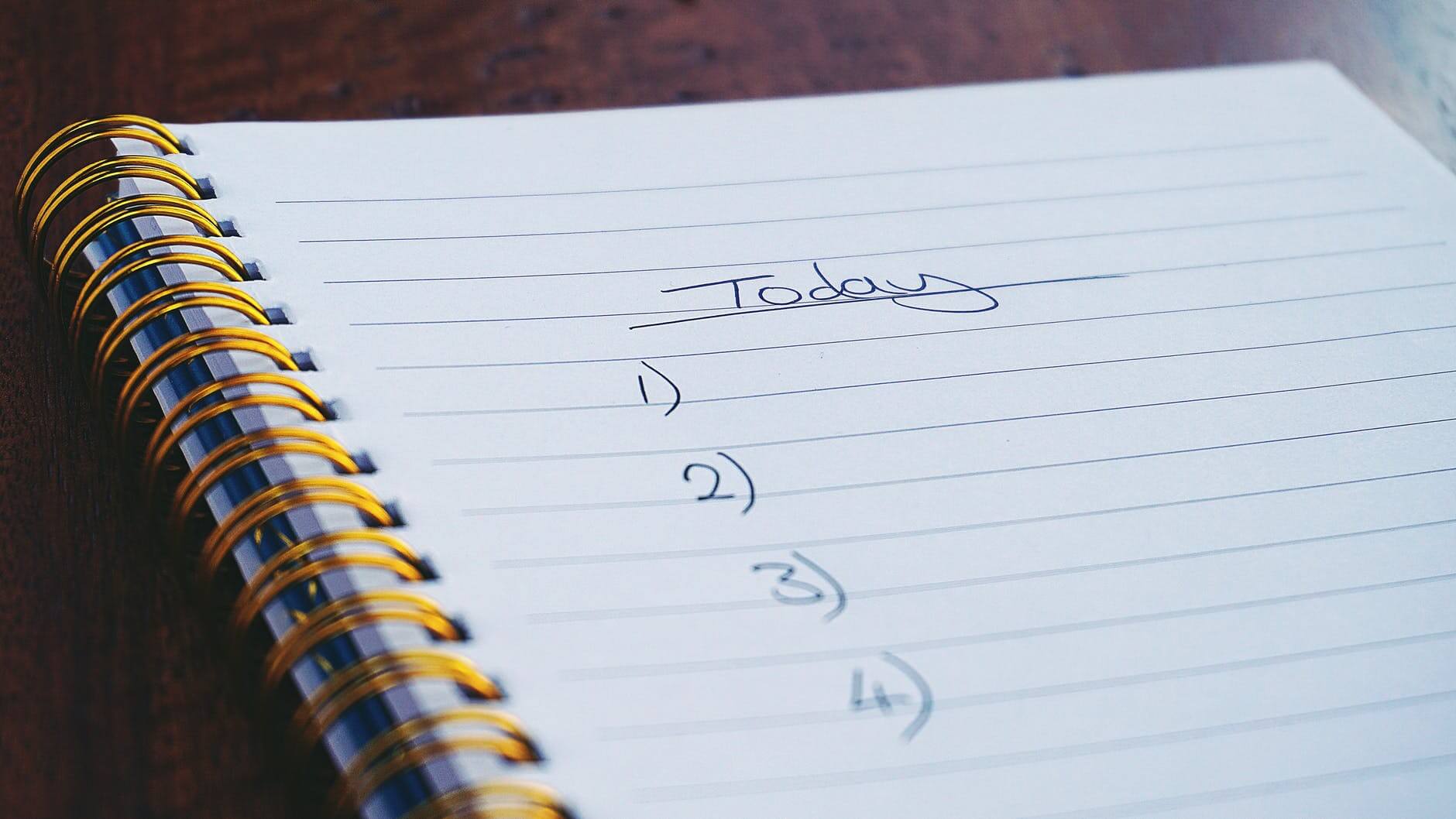How to improve your productivity at work
Try NowMaintaining high productivity at work is essential if you want to be a successful employee. At the end of the day, productivity is the result of planning and time management. While it may seem simple, being productive all the time is easier said than done. No matter how focused of a person you may naturally be, staying on-task every minute of the day gets tough.
There's good news, though. There are a variety of simple things that you can do to improve your productivity. Some of these tips will help you see results right away, but some others may take time to produce results. Regardless, if you're willing to put your mind to it, anything can be possible.
1. Practice delegation.
Let's face it. There are only a finite number of hours in one day. That means that you can only get a certain number of tasks done—no matter how much actually needs to get done. Asking for help isn't a bad thing at all, and many high achievers need to realize that delegation isn't the enemy.
Look at CEOs of companies, there are plenty of tasks that they could do, but they choose to delegate to other members of the team so that they can focus their efforts on more important tasks. Successful and productive people trust their teammates to help them execute on tasks.
To improve your productivity, be sure to practice delegation. When delegating tasks, make sure to give your colleagues ample resources to execute on the task. Make sure to communicate all the important details, which include the project requirements, deadline and client information, if applicable. No one will want to help you complete tasks unless you set them up for success.
2. Prioritize your time.
When you're at the office, it can be difficult to get everything done that you need to complete within the day. This becomes especially true when you have to balance working on tasks and going to meetings. To increase your productivity, you'll need to learn how to prioritize your time. This entails understanding what meetings are important to go to and which aren't as important to attend.
For reference, going to a meeting with your manager or with the owner of the company is probably one that you can't miss. However, going to a meeting to discuss starting a workplace committee on creativity probably isn't as worth your time.
To make sure that you allot enough time for getting all your tasks done, try blocking off time on your calendar that's reserved for work. Or, you can also try designating only certain days of the week as meeting days. To ensure that these policies are followed, be sure to communicate the policy to stakeholders and stick to your word.
3. Make to-do lists.
On any list that you can find for how to improve your productivity you'll find “making to-do lists.” These lists will help you organize your thoughts for what you need to complete. Additionally, listing out everything you have to do will motivate you to complete them quickly so that you can cross them off. On your to-do list, you can break down large, complex task into smaller, more manageable tasks. This will encourage you to keep going even though you have a lot to do.

Once you have the list, it will be easy to rank the tasks you need to accomplish. To gain motivation, start working on the easiest tasks first. And, if you really want to ensure that you get your tasks done in a timely fashion, add a time limit on your to-do-list. Having all of this information in one place will help you stay organized, which will boost your productivity.
When you're making a to-do list, you should consider using Mind Mapping strategies to fully see what you need to accomplish. In short, a mind map can help you visually thinking through the tasks you need to accomplish and help you to better analyze how you can complete the tasks at-hand.
4. Pace yourself.
It might seem counterintuitive to take breaks while you're trying to boost your productivity, there's solid research backing up the importance of doing so. Remember, productivity doesn't necessarily refer to how long you're at work—it refers to how much you're able to accomplish.
When you sit in the same spot for hours on end, you'll get bored and tired. When you're bored and tired, your productivity levels will drop. To avoid this happening, try to take one five-minute break each hour. Get up from your desk and walk around to get your blood flowing and to disconnect from work for just a few minutes.
5. Destroy distractions.
Technological advances have made it possible for us to be connected to our peers 24/7. While this is beneficial for staying on top of social happenings, it's also detrimental. Think about how many times you've been bored at work and you've reached for your cellphone and logged onto social media. Probably more often than not this happens. According to a study by LearnStuff.com, social media browsing in the United States adds up to 12.2 million hours each day. Your phone is the ultimate distraction.

To boost your productivity, you need to destroy distractions. Some ways that you can accomplish this include turning off notifications so that you aren't tempted to see what your friends tagged you in or messaged you about. Disabling notifications during the workday can also be helpful for destroying communication distractions. From blocking notifications on your text messages to silencing your personal email account, you can greatly increase your productivity because you won't be constantly bombarded with messages that will take away from your work.
At work, you obviously can't disconnect from your work email or your business messaging system. However, you can take matters into your own hands and use the tools that are at your disposal. If your company offers a business messaging system, make sure to change the status of your account to “busy” or “do not disturb” if you really need to get work done. Also, try to only check your email once every hour or once every other hour. This way, you're not falling behind on important communications, but you're also allotting yourself time to get work done, too.
6. Turn off the TV.
According to Nielsen, the average American spends 34 hours per week watching TV. That's nearly as much time as working a full-time job. Sitting in front of the television after a long day of work is a great way to relax, but watching too much TV can cause problems. “Binge-watching” television shows, or sitting in front of the TV watching an entire season of a show, takes quite a bit of time. Think about how many nights you've wasted away four hours watching four episodes of a show. What else could you have accomplished in those four hours? You probably could've gotten work done, folded laundry, cleaned the house or gone grocery shopping—maybe all of the above!
If you truly want to become more productive, you're going to need to scale back the amount of time you spend watching TV shows. This doesn't mean that you can't watch TV at all. Instead, it means maybe only watching one or two episodes of your favorite show instead of four or five. Additionally, you need to actually fill the hours you're not watching TV with productive tasks, like the ones mentioned in the above paragraph. That way, when you're at work, you won't be worried about what shopping you have to do or the chores that need to get done when you get home, you can just focus on work and being productive at your job.
7. Create actionable goals.
One of the best ways to become more productive is to set comprehensive and actionable goals for you to achieve. These goals could be short-term goals, like “I want to complete this project by the end of the day on Thursday.” Or, they could be long-term goals, like “I want to sell $450,000 in products by Dec. 15.” Once you have these goals, you can create a plan of action for achieving them.

Having of vision of where you want to go in your career and what you need to do to get there will intrinsically help you increase your productivity at work because you'll be extremely motivated to work toward you goal. When you have this clear vision, it's easy to prioritize what you need to do and how you can get there through increasing productivity and identifying your purpose.
Just like how you can use mind mapping to make your to-do lists, you can use mind mapping to create your personal and professional goals. To create a mind map, follow these simple steps:
1. Start in the middle of a blank page, writing or drawing the idea you intend to develop. I would suggest that you use the page in landscape orientation.
2. Develop the related subtopics around this central topic, connecting each of them to the center with a line.
3. Repeat the same process for the subtopics, generating lower-level subtopics as you see fit, connecting each of those to the corresponding subtopic.
8. Reward yourself when you achieve your goals.
If you don't reward yourself for doing a good job, it's likely that you'll lose motivation and run out of steam when the going gets tough. Rewarding yourself doesn't just have to be for achieving a long-term goal. For example, if you set a goal to edit 15 documents by the middle of the workweek, which is necessary to meet your productivity guidelines, you should reward yourself with a cup of coffee on Thursday morning if you reach the goal. Or, let's say you want to finish writing your book by the end of the month, consider taking a long weekend vacation if you meet that goal.
By motivating yourself with a prize for reaching your goals, no matter how small, your brain will force you to keep going in an effort to win that prize, even if it's a reward you're buying yourself. And, you will have something to work toward even if you hit a rough patch in your pursuit of reaching your goals.
9. Monitor yourself.
Unless your boss is on top of your hourly productivity, there's no one that will be policing how you spend your time besides you. It's up to you to monitor how you're spending your time at work and correcting any bad behaviors before they can negatively affect you and your productivity. For example, if you find yourself reaching for your phone instead of working on a project, you need to mentally check yourself and put the phone away so that you can get back to work. Again, it's on you to be the boss of your own productivity.
10. Set yourself up for success each night.
The best way to start your morning off on the right foot is to properly prepare the night before. Think about it. How productive are you really going to be during the day if you spend your morning in a state of chaos packing a lunch, trying to find clean clothes and then rushing to work? It will likely take a good hour into your workday until you're truly settled and ready to take on the day.

Try to get into a routine of packing your lunch, laying out your clothes and preparing for the day early in your evening. This will allow you to be organized in the morning, making for a stress-free morning routine. It will also allow you to get to bed earlier, which will make it possible to get more sleep. Getting adequate sleep is essential to your overall health and is a good indicator of how productive you'll be the next day. Establishing this routine may seem like an impossible task, but as long as you stick to it, you'll be able to create a routine that seems like second nature.
Summary
Boosting your productivity in both your personal and professional life is essential if you want to be successful in everything that you do. Take these 11 tips, which are designed to help you improve your productivity professionally and personally, and start reaping the rewards.

